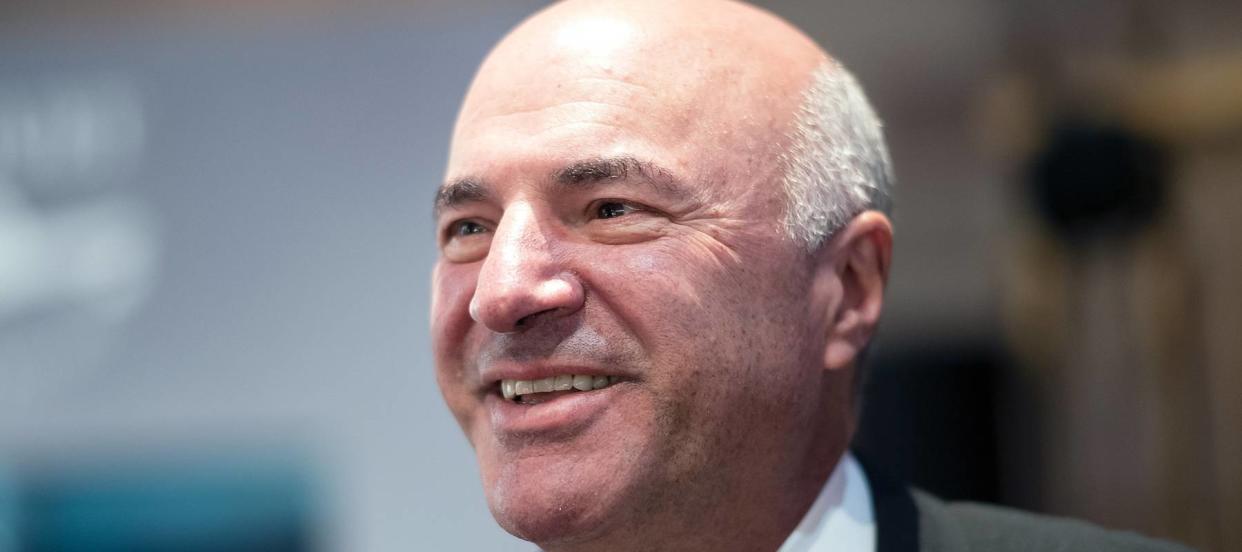Kevin O’Leary once admitted he lost $750K in mere months after pouring it into his friends business – 3 tips to keep the emotions out of your investing moves

We adhere to strict standards of editorial integrity to help you make decisions with confidence. Some or all links contained within this article are paid links.
“Shark Tank” star and entrepreneur Kevin O’Leary confessed that he once lost $750,000 supporting a friend’s business venture.
“I gave him $250,000,” he said on stage with Grant Cardone at 10X Growth Con 2021. “Sixty days later, he comes back and says, ‘I need another $500,000 to make this work.’”
The businessman admits he went against his intuition. O’Leary says the experience taught him to never let emotions get in the way of his judgment. It’s a lesson backed by research.
Behavioral economics is the study of human psychology as it relates to decision-making — including within the realm of finance. Understanding how emotions impact financial decisions can help you identify common behavioral patterns and improve your judgment.
Here are a couple ways investors can resist emotional impulses and make investing decisions with confidence.
Be aware of biases
The veteran businessman admits he went against his intuition when gave his friend the money.
“I gave him the [cash], he went to zero 90 days later,” O’Leary shared with the crowd in 2021. “Please, a moment of silence for that money.” Over the years, psychologists have identified a number of cognitive biases that impact investors.
Confirmation bias occurs when you seek out information but focus on that which cements what you already believe.
Risk aversion is probably one of the most powerful bias investors deal with. The fear of losing money can outweigh the pleasure of gaining it, so decisions are rooted in fear.
Instead of acting on impulse, when presented with an opportunity, take your time before making a decision. Make a habit of asking more questions and collect as much information as possible.
It’s hard to totally shut down your feelings, which is why having professional advice can be a lifesaver. With Zoe Financial, all you have to do is answer a few questions about yourself, and they will provide you with a list of financial advisors that match your needs and can help you take the emotion out of financial decisions.
Once you get matched, you can book a free consultation with no obligation to hire.
Stick to the program
One way to avoid emotions is to create an investment plan and stick to it with steadfast dedication. This plan could include a checklist for due diligence and a fixed time horizon for new investments to ensure you’re picking the best stocks and holding them despite volatility.
Integrating a margin of safety is also essential. No matter how confident you are, buying a stock for less than you think it’s worth on the market is usually a good strategy. So is diversification. Having a diverse portfolio can decrease your risk exposure. If a particular stock or industry tumbles, it will affect only a fraction of your investments.
Interactive Brokers is a low-cost investment broker for active traders that allows you to easily invest in and trade a wide variety of stocks. With Interactive Brokers, you can maximize your returns as they offer low commissions and the ability to scan multiple markets for undervalued stocks.
One of their products, IBKR Lite, allows investors top buy fractional shares with no minimum investments and provides access to educational materials to ensure your trading experience aligns with your financial goals. To get started all you have to do is fill out their online application.
If being an active trader isn’t for you, then consider an automated portfolio through Wealthfront.
Wealthfront is an investing and financial services company that can help you grow your money in a way that aligns with your appetite for risk and investing goals. By answering a few questions, Wealthfront can help you determine the optimal asset allocation by crafting a diversified portfolio spanning a range of assets — from stocks, ETFs and bonds to real estate.
This article provides information only and should not be construed as advice. It is provided without warranty of any kind.
